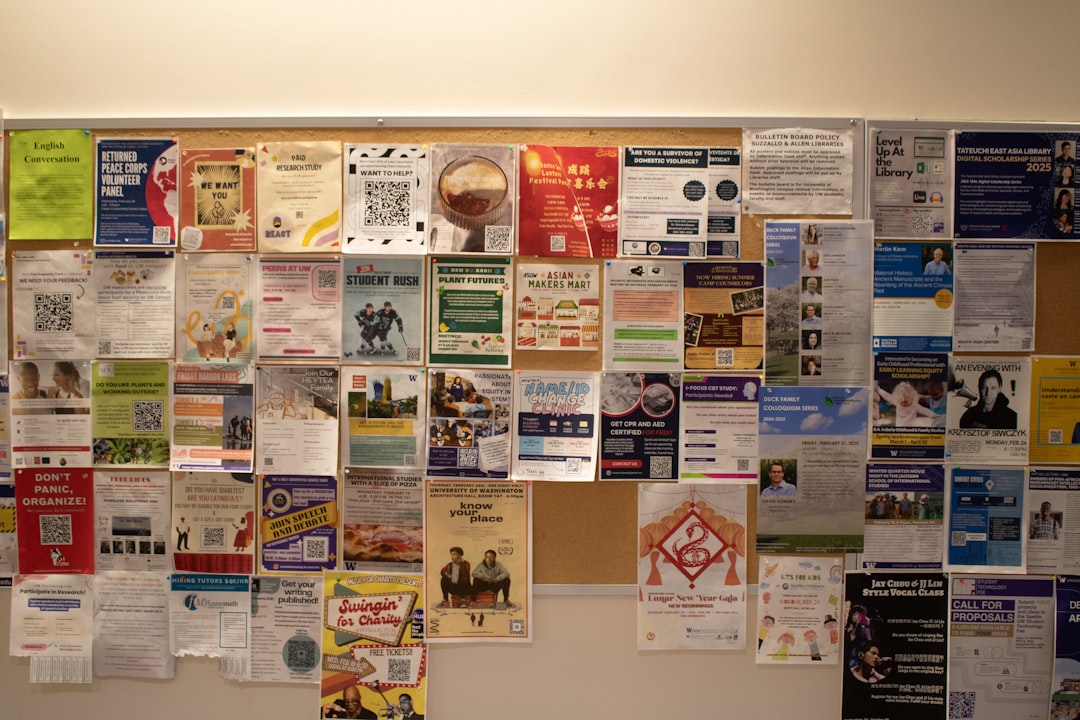Why Atlanta Moms-to-Be Are Getting Paid to Share Their Experiences
Focus groups for pregnant women atlanta ga are paid research studies where expectant mothers share opinions about healthcare, products, and services that affect pregnancy and childbirth. These sessions help improve maternal care while putting extra money in participants’ pockets.
Quick Answer for Atlanta Moms:
- Compensation: $50-$550 per study
- Time Commitment: 30 minutes to 3 hours
- Format: Online or in-person sessions
- Requirements: Usually ages 18-45, various pregnancy stages
- Key Organizations: Emory University, Kaiser Permanente Georgia, CDC, MotherToBaby
Atlanta leads the nation in pregnancy research thanks to major healthcare systems like Emory, Grady Health, and Kaiser Permanente Georgia. The city’s diverse population makes it ideal for studies that shape maternal healthcare nationwide.
Recent studies show Atlanta focus groups have directly influenced CDC public health campaigns like “Hear Her,” which uses feedback from local moms to prevent pregnancy complications. Other research has improved nutrition programs and flu vaccination guidelines for pregnant women.
The compensation ranges from $50 for short online sessions to $550 for multi-day diary studies. Most participants earn $150-$200 for sharing their experiences about prenatal care, pregnancy products, or health concerns.
As Scott Brown, founder of Focus Group Placement, I’ve connected thousands of participants with legitimate research opportunities since 2014, including many focus groups for pregnant women atlanta ga through our platform. My experience helps ensure moms find safe, well-compensated studies that respect their time and privacy.

What Are Pregnancy Focus Groups & Why Atlanta Leads the Way
Think of pregnancy focus groups as relaxed, paid round-table chats where 6-12 expectant mothers discuss everything from prenatal vitamins to doctor visits. These focus groups for pregnant women atlanta ga turn everyday experiences into insights that improve products, healthcare services and public health campaigns.
Atlanta is the go-to city for pregnancy research thanks to institutions like Emory University, Grady Health System, and the CDC—plus Georgias urgent need to lower maternal mortality rates.
The CDCs “Hear Her” campaign ran eight Atlanta focus groups in 2019, intentionally including more African American moms to address higher pregnancy risks. Feedback from sessions like these already shapes national guidelines and hospital policies.
Key Purposes for Moms-to-Be
- Research insights convert your stories into scientific knowledge that guides doctor training and hospital protocols.
- Product feedback ensures prenatal vitamins, maternity wear and baby gear really work for real moms.
- Public health messaging gets clearer when researchers hear how pregnant women actually talk and think.
- Care quality improvement happens as projects like the Georgia Moms Project use your experiences to push policy change.
Organizers Youll Hear About
- Emory University – studies on nutrition, mental wellness and more.
- Grady Health System – focus groups reflecting Atlantas diverse populations.
- Morehouse School of Medicine – research aimed at reducing health disparities among Black mothers.
- MotherToBaby – observational studies for women with conditions like asthma, lupus, or multiple sclerosis.
- Atlanta NGOs – community projects serving underserved neighborhoods.
Focus Groups for Pregnant Women Atlanta GA: How to Find & Sign Up

Getting started with focus groups for pregnant women atlanta ga is surprisingly straightforward. Most research organizations have moved their recruitment online, making it easier than ever to find studies that match your situation.
The journey typically begins when you complete a brief screening survey. This questionnaire asks about your pregnancy stage, health history, and basic demographics. Don’t worry—these questions help researchers match you with the most relevant studies, not exclude you from opportunities.
Research organizations maintain study calendars that get updated regularly throughout the month. Some studies plan months ahead, while others need participants within just a few days. This variety means there’s often something available that fits your timeline.
At Focus Group Placement, we’ve built relationships with legitimate research organizations across Atlanta. Our platform specializes in connecting expectant mothers with appropriate studies based on their unique circumstances. You can browse active studies in Atlanta, GA to find your next opportunity.
Online & In-Person Options Using the Primary Keyword
Today’s focus groups for pregnant women atlanta ga offer flexibility that works with your pregnancy journey. Whether you’re dealing with morning sickness, mobility challenges, or just prefer staying home, there’s likely an option that fits.
Virtual sessions have become incredibly popular, especially after researchers finded how convenient they are for expectant mothers. You can participate from your couch using just your smartphone or computer. Recent online studies have paid between $90 for one-hour video sessions and $150 for multi-day community discussions. The best part? No parking hassles or travel time when you’re already feeling tired.
In-person meetings still happen regularly throughout Atlanta’s medical district. These sessions often take place in comfortable conference rooms at Emory University facilities, Kaiser Permanente Georgia offices, or community health centers. Many participants enjoy the face-to-face interaction and the chance to meet other expectant mothers. Plus, in-person sessions sometimes offer slightly higher compensation.
The growing trend toward Focus Group Work From Home options recognizes that pregnancy can be unpredictable. Some days you feel great, other days you don’t want to leave the house—and that’s perfectly normal.
Eligibility Checklist—Do You Qualify?
Most focus groups for pregnant women atlanta ga share similar basic requirements, though each study has its own specific needs. Understanding these criteria helps you identify which opportunities might be the best fit.
Age typically ranges from 18 to 45, though some studies focus on specific age groups. Younger mothers (21-29) or older first-time parents might find studies designed especially for their experiences.
Your pregnancy stage matters, but not in the way you might think. Some studies want women in their first trimester, others focus on the third trimester experience, and many welcome mothers up to six months postpartum. There’s usually something available regardless of where you are in your journey.
Health conditions can actually be an advantage in certain studies. Research focusing on asthma, lupus, diabetes, or other conditions specifically seeks women managing these issues during pregnancy. Other studies may have health restrictions based on their research goals.
Language requirements vary by study. While most sessions happen in English, Atlanta’s diverse population means some studies specifically recruit Spanish-speaking participants or offer bilingual options.
Technology access becomes important for virtual sessions. You’ll need reliable internet and a device with camera and microphone capabilities. Most smartphones work perfectly fine.
When you complete screening surveys, expect questions about your pregnancy timeline, health history, medication use, previous focus group participation, household income, and insurance status. These aren’t meant to be invasive—they help researchers create diverse, representative groups that produce meaningful results.
What to Expect During a Session & How You’re Protected
Walking into your first pregnancy focus group can feel a bit nerve-wracking, but most participants are pleasantly surprised by how comfortable and welcoming these sessions actually are. Think of it more like a friendly coffee chat with other moms-to-be rather than a formal interview.
The atmosphere is designed to put you at ease from the moment you arrive. A trained moderator will guide the conversation, making sure everyone gets a chance to share their thoughts and experiences. You’ll never be put on the spot or pressured to answer anything that makes you uncomfortable.
Confidentiality is taken very seriously in legitimate research studies. Before anything begins, you’ll sign an informed consent form that clearly explains how your information will be used and protected. Most studies operate under strict oversight from Institutional Review Boards (IRBs) – these are committees that make sure all research meets ethical standards.
Your privacy is protected by laws like HIPAA, and researchers typically remove all identifying information from your responses before analyzing the data. Your name stays separate from what you say, so you can speak freely about your experiences.
| Online Focus Groups | In-Person Focus Groups |
|---|---|
| Participate from home | Travel to research facility |
| 1-3 hours typically | 2-4 hours including check-in |
| Webcam and microphone required | No technology needed |
| More scheduling flexibility | Fixed appointment times |
| $50-$200 compensation range | $100-$300 compensation range |
| Easier for mobility-limited participants | More interactive group dynamics |
| Recording done automatically | Video/audio recording in facility |
Typical Agenda
A typical focus groups for pregnant women atlanta ga session flows naturally from introductions to deeper discussions about your pregnancy journey.
Welcome and getting acquainted usually takes about 15 minutes. You’ll introduce yourself using just your first name and share basic details like when you’re due or whether this is your first baby. Everyone’s in the same boat, so there’s an instant sense of connection.
Icebreaker questions help everyone relax and start talking. The moderator might ask something light like “What’s been your biggest pregnancy craving?” or “What advice did your mom give you that made you laugh?” These moments often bring out shared experiences and plenty of smiles.
The main discussion is where the real value happens, typically lasting 60 to 90 minutes. This is when you’ll dive into topics like your experiences with prenatal care, thoughts about pregnancy products, or reactions to health campaigns. Your honest opinions during this time directly influence how companies and healthcare systems serve future moms.
Quick polls or ranking activities might pop up for about 15 minutes. These help researchers gather specific data alongside your stories and opinions.
Wrapping up takes just 10 minutes, usually with a brief survey and information about when you’ll receive your compensation.
Compensation & Perks
Let’s talk about the part everyone wants to know about – getting paid for sharing your experiences! Compensation for focus groups for pregnant women atlanta ga varies quite a bit depending on what’s involved.
Gift cards are the most common form of payment, usually to places like Target, Amazon, or grocery stores. They’re convenient for researchers to distribute and don’t create tax headaches for smaller amounts.
Cash payments happen too, though they’re less common for shorter studies due to the paperwork involved.
Here’s what you can typically expect to earn: Short online surveys might pay $50 to $75, while one-hour virtual focus groups usually offer $90 to $150. If you join a multi-day online community discussion, you could earn $150 to $220. In-person sessions often pay $100 to $300, and extended diary studies can reach $300 to $550.
The perks often go beyond just the money. Many studies offer childcare stipends if you need to attend in person, plus parking reimbursement so you’re not out of pocket. You’ll often receive helpful resource handouts with pregnancy information, and some organizations give you priority notification for future studies. In-person sessions usually include snacks or light meals too.
Scientific research on participant incentives shows that fair compensation doesn’t just help participants – it actually improves the quality of research by ensuring diverse voices are heard. Your time and insights are genuinely valuable, and good research organizations recognize that.
Current & Upcoming Studies You Can Join Right Now
Right now, there are several exciting opportunities for Atlanta moms to join meaningful research studies. The best part? You’re not just earning compensation—you’re helping improve healthcare for future generations of mothers.
The Georgia Moms Project is currently interviewing recent mothers throughout Georgia to understand real maternity care experiences. This isn’t just another survey—researchers want to hear your actual story and what you went through. They’re specifically looking at factors that contribute to Georgia’s concerning maternal mortality rates, and your voice could help save lives.
RISE UPP Women has an especially important study running right now. They’re recruiting Black women who are pregnant or within six months of giving birth to discuss how stress affects prenatal and postpartum care. Given the significant health disparities facing Black mothers, this research could lead to real changes in how healthcare providers support families.
MotherToBaby Pregnancy Studies offer some of the most flexible options for busy moms. These observational studies are backed by $6 million in federal funding and welcome participants from across the country. The best part? They won’t ask you to change your medications or daily routine—they simply want to learn from your experiences.
The Hear Her Campaign continues expanding its focus group research to make maternal health messaging more effective. These studies look at what actually resonates with new parents, not what healthcare professionals think should resonate.
AIM-CCI Fatherhood Focus Groups might sound like they’re just for dads, but many recruit couples and often lead to related studies specifically for expectant mothers. It’s worth keeping an eye on these opportunities.
For those who prefer staying home, Online Research Studies include many pregnancy-related opportunities that you can complete virtually.
Niche Groups for Specific Populations
Some of the most well-compensated studies focus on specific groups of mothers who face unique challenges during pregnancy.
High-risk pregnancies are often the focus of specialized research. If you have diabetes, high blood pressure, or experienced complications in previous pregnancies, researchers particularly value your insights. These studies help improve care for the most vulnerable mothers and babies.
Chronic health conditions create their own set of pregnancy challenges. MotherToBaby studies actively seek women with asthma, lupus, multiple sclerosis, and other ongoing health issues. They want to understand how these conditions and their treatments affect pregnancy outcomes—knowledge that directly benefits women facing similar situations.
Spanish-speaking mothers have dedicated opportunities through organizations offering bilingual sessions or Spanish-language focus groups for pregnant women atlanta ga. This ensures that diverse voices shape healthcare policies and practices.
First-time parents often have completely different concerns and experiences than seasoned moms. Many studies specifically target first-time mothers because their perspectives help improve prenatal education and early pregnancy support.
African American women are frequently sought for studies addressing the significant health disparities this community faces. Given that Black mothers in Georgia face some of the highest risks of pregnancy complications, these studies are crucial for developing targeted interventions.
Low-income families may qualify for studies examining how financial stress and limited resources affect pregnancy experiences. These studies often lead to improved support programs and policy changes.

Frequently Asked Questions about Paid Pregnancy Focus Groups in Atlanta
How long do sessions usually last?
The time commitment for focus groups for pregnant women atlanta ga really depends on what type of study you’re joining. Most expectant moms find the time investment pretty manageable, especially when they see the compensation.
Online sessions are usually the quickest option, typically running 1-2 hours from start to finish. You can participate right from your couch, which is perfect when you’re dealing with pregnancy fatigue or don’t want to travel.
In-person sessions tend to be a bit longer – usually 2-3 hours including the time it takes to check in and get settled. The extra time often means higher compensation, and many participants enjoy the chance to connect with other moms-to-be in person.
Some studies use a different format altogether. Multi-day online communities might ask you to spend just 30 minutes each day for 3-5 days sharing your thoughts and experiences. Diary studies can stretch over several weeks, but you’re usually only logging 10-15 minutes of information each day.
The research team will always tell you exactly how much time is involved before you commit to anything. This way, you can decide if it works with your schedule and energy levels.
Will participating affect my medical care?
This is one of the most common concerns we hear from expectant mothers, and it’s completely understandable. The good news is that participating in focus groups won’t interfere with your regular prenatal care at all.
These are observational studies – researchers want to learn from your experiences, not change them. They’re interested in hearing about your real-world pregnancy journey, your opinions about products or services, and your thoughts on healthcare messaging.
MotherToBaby studies are particularly clear about this. They specifically tell participants that they won’t be asked to change medications, switch doctors, or alter their routines in any way. The whole point is to understand what’s actually happening in pregnant women’s lives without influencing those experiences.
If you’re ever unsure about whether a study might conflict with your medical care, don’t hesitate to ask questions during the screening process. Legitimate researchers are always happy to explain exactly what’s involved and address any concerns you might have.
Your health and your baby’s health always come first – focus groups are just a way to share your experiences while earning some extra money.
How soon is compensation paid?
Most expectant moms are curious about when they’ll actually see their compensation, especially since that extra money can really help with baby expenses. The timeline varies depending on the study and payment method, but most organizations are pretty reliable about getting payments out promptly.
Gift cards are usually the fastest option. For in-person sessions, you might receive your gift card right after the session ends. Online sessions typically result in gift cards being emailed within a few days. Target, Amazon, and grocery store gift cards are popular choices that work well for pregnancy and baby purchases.
Cash payments take a bit longer to process – usually 2-3 weeks. The research organizations need time to handle the paperwork and get checks cut, but the wait is generally worth it for the convenience of cash.
Checks by mail are the slowest option, often taking 3-4 weeks to arrive. Some participants prefer this method for larger payments or tax record-keeping purposes.
Multi-day studies sometimes pay in installments as you complete each phase, while others wait until you’ve finished everything before sending the full amount. The payment schedule is always explained clearly when you sign up.
If your payment doesn’t arrive within the promised timeframe, don’t worry. Legitimate research organizations always have a contact person you can reach out to, and they’re usually quick to resolve any payment issues. We help connect participants with reputable organizations that have good track records for timely compensation.
Conclusion

Participating in focus groups for pregnant women atlanta ga is more than just earning extra money during pregnancy—it’s about making your voice count when it matters most. Your experiences navigating prenatal care, trying pregnancy products, and dealing with the ups and downs of expecting a baby provide invaluable insights that shape the future of maternal healthcare.
The compensation is certainly attractive, with most participants earning $150-$200 for a few hours of sharing their thoughts. But many moms tell us the real reward comes from knowing their feedback led to better prenatal vitamins, clearer health messaging, or improved hospital policies that will help other families down the road.
Atlanta’s unique position as a research hub means you have access to opportunities most pregnant women across the country simply don’t get. With organizations like Emory University, Kaiser Permanente Georgia, and the CDC all conducting important maternal health research right in your backyard, there’s almost always a study looking for participants just like you.
Whether you’re dealing with morning sickness and prefer online sessions from your couch, or you’re feeling great and don’t mind traveling to an in-person focus group, there are options that fit your comfort level and schedule. The flexibility is especially important when you’re pregnant and never quite sure how you’ll feel on any given day.
The research community genuinely values what you have to say. Your perspective as someone actually living through pregnancy brings a reality check that researchers can’t get from medical textbooks or clinical data alone. When you share that a certain health message confused you, or that a product didn’t work as advertised, that feedback gets turned into real improvements.
At Focus Group Placement, we’ve been helping connect people with legitimate research opportunities since 2014. We understand that trust is especially important when you’re pregnant and being extra careful about everything you do. That’s why we only work with reputable organizations that follow strict ethical guidelines and prioritize participant safety.
Getting started is straightforward. Most studies begin with a simple screening survey that takes just a few minutes to complete. From there, if you’re a good match, you’ll be invited to participate with full details about what’s involved, how long it takes, and exactly how much you’ll be paid.
Ready to turn your pregnancy experiences into meaningful research and extra cash? Visit FocusGroupPlacement.com today to explore current focus groups for pregnant women atlanta ga and find how your opinions can make a real difference while adding some welcome funds to your growing family’s budget.






























